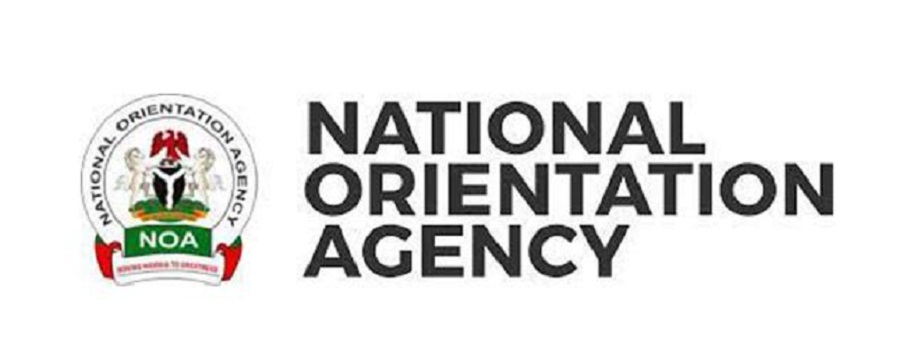News
CISLAC Says Nigeria Loses $18Bn Yearly to Illicit Financial Flows

Auwal Musa Rafsanjani, executive director, Civil Society Legislative Advocacy Centre (CISLAC), on Monday, expressed grave displeasure over the endemic corruption ravaging Nigeria which has led to loss of $18 billion yearly to illicit financial flows (IFFs).

Mr. Rafsanjani who doubles as Head of Transparency International (TI) Nigeria in a statement titled: ‘Repositioning the EFCC for effective and transparency in anti-corruption war in Nigeria’, however, observed that Nigeria was been ranked as one of the 23 countries that were ranked by Financial Action Task Force (FATF) as non-cooperative in the combined efforts to fight money laundering globally, since its establishment in 2003.
Mr. Rafsanjani who expressed concern over the alleged corruption being perpetuated within the banking sector, argued that: “Despite the powers of and the checks that have been put in place by the Central Bank of Nigeria (CBN and other relevant institutions regulating the sector, it appears that the system is being manipulated as Nigeria loses between $15 – 18 billion annually to illicit financial flows (IFFs).
“The banking sector has been largely implicated in money laundering where they have been instrumental in the initial entry or placement phase that involves the initial movement of an amount of money earned from criminal activity into some legitimate financial network or institution.
“This illicit act embedded into a legal trade has pervaded both the national and international business and banking industry with unabated vigor. In 2021, a directive was issued by the then chairman of the Commission, for operators in the Nigerian financial system, particularly bankers to declare their assets as from June 1, 2021.
“That directive was rightly in line with Sections 1 and 7 of the Bank Employees, etc. (Declaration of Assets) Act 1986, which compelled Bank Employees to make full disclosure of assets within fourteen days and provides a 10-year imprisonment sentence on conviction for offenses of unjust enrichment, respectively.
“Sustaining this initiative will ensure adequate measures in sanitizing the nation’s financial system by helping to prevent money laundering and illicit financial flows (IFFs) through which terrorism is largely funded, to effectively tax bank executives, and to expose illegal financial transactions.”
While noting that these inadequacies persist, he underscored the need to ensure that the provisions of the EFCC (Establishment) Act satisfy public and standard expectations for eligibility of a nominated Chairman and meet the purpose for which a financial crimes institution should be set up.
The CISLAC helmsman also urged the Commission to ensure that it “conducts thorough investigations of all public officers and politically exposed persons (PEP) named in the Pandora papers, Panama Papers, Paradise Papers, Genko scandal and FinCEN Files while those found guilty be made to face the full wrath of the law as a deterrent to others.
News
NOA Uncovers Fraud by Banks, Universities in Students Loan Scheme

National Orientation Agency (NOA) has revealed that an investigation by its Community Orientation and Mobilisation Officers (COMO) uncovered unethical practices by some tertiary institutions, in collaboration with certain banks, that are depriving students of their rightful access to the Federal Government Student Loan Fund.

Paul Odenyi, deputy director of Communications and Media, in a statement Sunday, disclosed that several universities and financial institutions have been found engaging in fraudulent activities that prevent students from receiving the loans allocated to them.
Mallam Lanre Issa-Onilu, director general, NOA, shared these troubling findings following a high-level meeting with Mr. Akintunde Sawyerr, managing director, Nigeria Education Loan Fund (NELFUND), over the weekend.
According to NOA, preliminary reports led to an urgent intervention from NELFUND after it was discovered that some university officials had deliberately withheld critical details about student loan disbursements.
Further feedback from NOA confirmed that certain institutions, in collusion with banks, have intentionally delayed payments to approved applicants for dubious financial gain.
Additionally, some universities do not acknowledge the disbursements made by NELFUND to students.
Sawyerr confirmed that certain institutions have withheld information about loan payments issued in students’ names while still demanding tuition fees from them.
He warned that NELFUND is ready to take legal action against institutions found guilty of engaging in fraudulent practices.
He stated, “Recent findings by NELFUND have shown that some institutions have received student loan disbursements directly into their accounts yet neglect to inform the affected students or record the payments in their financial records, leading to unnecessary confusion.
“Withholding critical financial information from students is not only unethical but also a breach of the principles on which NELFUND was founded.
“We are prepared to take legal action against any institution engaged in such deceptive practices.”
The investigation revealed that in some instances, universities continued to demand full tuition payments from students, despite having already received the loan funds intended to cover those fees.
According to the NOA, this constitutes a gross violation of student rights and a betrayal of public trust.
Issa-Onilu, therefore, issued a strong warning to the institutions and collaborating financial institutions, demanding an immediate end to these actions.
He also directed all NOA state directorates to intensify feedback collection from students nationwide to aid the Federal Government in identifying and penalising the erring parties.
The NOA emphasised its commitment to transparency, accountability, and ensuring that students benefit fully from the government’s intervention in education financing.
The statement added that the investigation remains ongoing, and further actions are expected in the coming weeks.
General News
Nigeria Records $6.83Bn Balance of Payments Surplus in 2024 Amid Economic Reforms

Central Bank of Nigeria (CBN) has announced a remarkable $6.83 billion balance of payments surplus for 2024, marking a decisive turnaround from deficits of $3.34 billion in 2023 and $3.32 billion in 2022.

This achievement reflects the impact of sweeping macroeconomic reforms, stronger trade dynamics, and renewed investor confidence in the nation’s economic direction.
Speaking at the 36th Enugu International Trade Fair, Acting Director of Corporate Communications, Mrs. Hakama Sidi Ali, highlighted the CBN’s commitment to addressing economic challenges and fostering productivity, particularly for SMEs.
She emphasized the importance of robust financial systems, foreign exchange stability, and collaboration between monetary and fiscal authorities in achieving industrial development and global recognition.
The President of the Enugu Chamber of Commerce, Sir Odeiga Jideonwo, commended the CBN’s efforts but expressed concerns over the recent hike in interest rates, cautioning that it could hinder access to credit for businesses.
This surplus signals a positive trajectory for Nigeria’s economy, benefiting investors, businesses, and citizens alike.
News
Senate Committee Partners with Kuda Bank to Tackle Compliance Crisis as Nigeria Loses ₦3.4 Trillion

Over ₦3.4 trillion in financial infractions were uncovered across federal Ministries, Departments, and Agencies (MDAs) in 2021, according to the Auditor General’s report — a staggering figure that highlights Nigeria’s deepening compliance crisis and the urgent need for stronger oversight in public institutions.

In response, the Senate Committee on Legislative Compliance is hosting a high-level workshop to address the root causes of weak oversight and institutional gaps. The two-day event, with the theme ‘Consolidating Strategies for Strengthening Legislative Compliance by MDAs’, will take place on April 15 and 16, 2025 at NAF Suites, Abuja, bringing together lawmakers, regulators, and over two hundred representatives from federal MDAs.
Kuda Microfinance Bank is co-sponsoring the workshop as part of its commitment to supporting responsible innovation, governance, and regulatory alignment in Nigeria’s financial ecosystem.
Rasaq Kadri, Kuda’s Head of Compliance, will deliver a keynote address on the second day of the event, highlighting the efforts of Nigeria’s fintechs to promote inclusion and financial literacy without compromising on compliance best practices.
“When public funds go unaccounted for, it doesn’t just damage government credibility, it affects the entire financial ecosystem, including fintechs,” said Kadri. “We can’t build trust-driven products in a trust-deficient environment. Every time compliance is treated as a box-ticking exercise, we miss the chance to build something that lasts. Fintechs have the tools and perspective to support better governance, but more importantly, we have a responsibility to be part of the solution.”
As a sponsor, Kuda will take the workshop to engage directly with key stakeholders in Nigeria’s regulatory and public service ecosystem.
Plenary sessions will be chaired by the Honourable Attorney General of the Federation, Lateef Fagbemi SAN, and the Honourable Minister of Finance, Wale Edun. Conversations will focus on closing compliance gaps, strengthening institutional transparency, and promoting cross-sector collaboration.
The Senate Committee on Legislative Compliance Workshop is a unique platform for dialogue, knowledge-sharing, and collaborative action.

 E-Business2 days ago
E-Business2 days agoNITDA Warns Against Fake Google Play Store

 General News2 days ago
General News2 days agoLagos Commences Integration of NIN with State Single Social Register

 News2 days ago
News2 days agoNOA Uncovers Fraud by Banks, Universities in Students Loan Scheme

 E-Financial2 days ago
E-Financial2 days agoUBA Redefines Banking with Next-Gen PoS Terminals and Revamped MONI App

 E-Financial2 days ago
E-Financial2 days agoSEC Bans Unregistered Digital Asset Exchanges, Online Forex Platforms

 E-Financial2 days ago
E-Financial2 days agoAfrica Loses $88.6Bn Yearly to Corruption- ECOWAS

 E-Financial2 days ago
E-Financial2 days agoNIBSS Heads to Court to Recover N4Bn Lost due to System Glitch

 General News2 days ago
General News2 days agoNigeria Records $6.83Bn Balance of Payments Surplus in 2024 Amid Economic Reforms






















